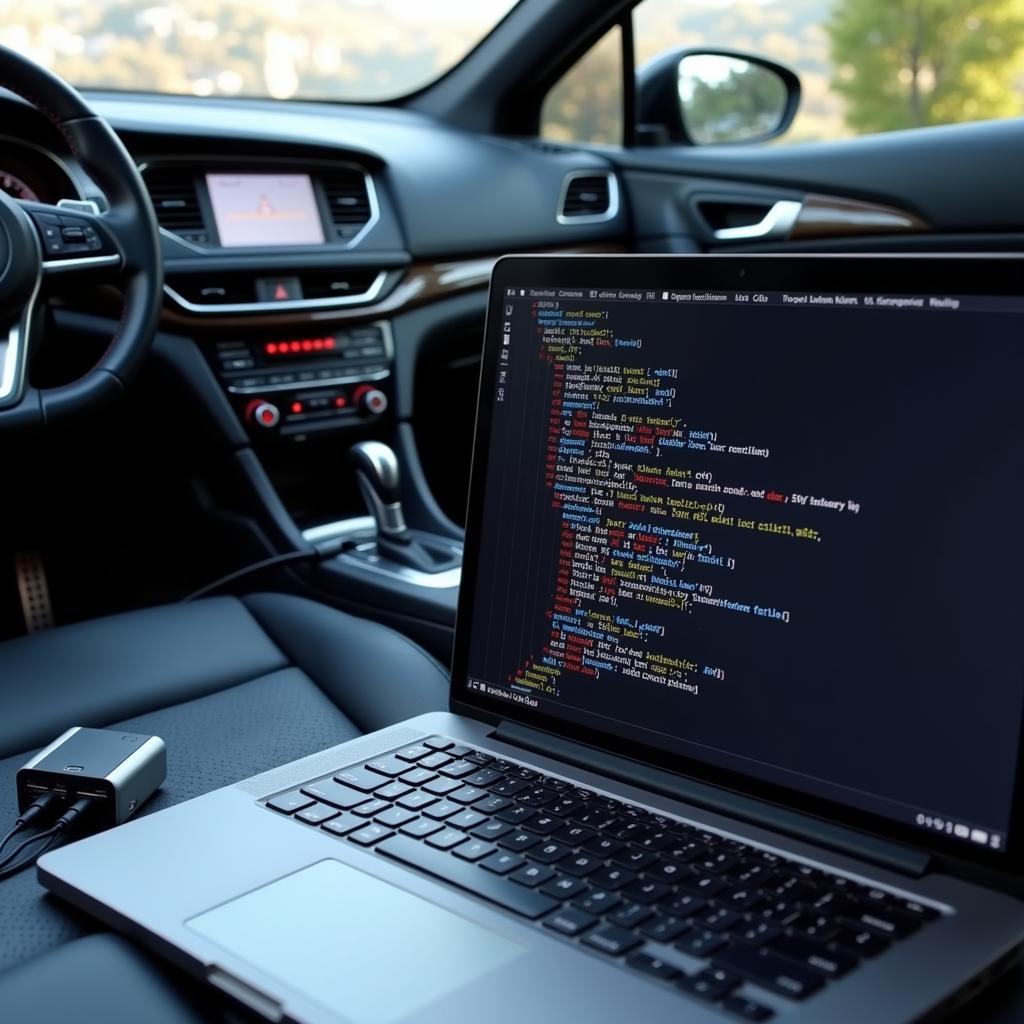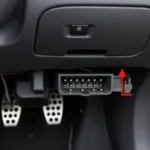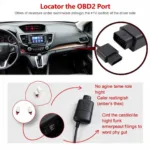OBD2 scanner coding might sound like a daunting task for car owners, but understanding its potential can open up a world of possibilities for customizing your vehicle’s features and maximizing its performance. Whether you’re looking to enable hidden features, troubleshoot warning lights, or simply gain a deeper understanding of your car’s inner workings, OBD2 coding can be your key.
Demystifying OBD2 Scanner Coding
At its core, OBD2 scanner coding involves using a specialized device, an OBD2 scanner, to access and modify the software settings within your vehicle’s electronic control units (ECUs). These ECUs act as the brains of various systems in your car, from the engine and transmission to the airbags and lights.
Think of it like this: your car’s factory settings are like a pre-set menu at a restaurant. It offers a standard experience, but OBD2 coding allows you to customize the menu to your liking. You can add or remove options, tweak settings, and essentially personalize your car’s functionality.
The Power of Customization: What Can You Do with OBD2 Coding?
The range of modifications possible with OBD2 coding varies significantly depending on your car’s make, model, and year. However, some common applications include:
- Unlocking Hidden Features: Many manufacturers disable certain features in their vehicles for various reasons. OBD2 coding can unlock these features, such as daytime running lights, automatic window roll-up, or welcome lights.
- Personalized Comfort and Convenience: Adjust settings for automatic door locking, adjust the sensitivity of your rain-sensing wipers, or modify the behavior of your automatic headlights – all tailored to your preferences.
- Enhanced Performance: While not turning your car into a sports car overnight, OBD2 coding can help optimize certain performance parameters, such as throttle response, for a more responsive driving experience.
- Troubleshooting and Diagnostics: Beyond customization, OBD2 scanners are invaluable for reading and clearing diagnostic trouble codes (DTCs). These codes are like your car’s way of telling you something is wrong, and a scanner can help pinpoint the issue.
Choosing the Right OBD2 Scanner for Coding
Not all OBD2 scanners are created equal. While basic scanners can read and clear DTCs, coding requires more advanced functionalities. Look for scanners that explicitly mention coding capabilities for your car’s make and model.
“When choosing an OBD2 scanner for coding, it’s crucial to consider compatibility with your vehicle’s make and model,” advises John Miller, a senior automotive technician with over 20 years of experience. “Investing in a reputable brand and seeking guidance from online forums or communities dedicated to your car model can prevent compatibility issues.”
Safety and Precautions: Navigating OBD2 Coding Responsibly
While OBD2 coding offers exciting possibilities, it’s essential to approach it with caution. Modifying your car’s software settings without proper understanding can potentially lead to unintended consequences, affecting your car’s warranty or even its safety systems.
Here are some safety precautions:
- Thorough Research is Key: Before attempting any coding modifications, research thoroughly and understand the implications of the changes you’re making.
- Backup Your Settings: Most advanced scanners allow you to back up your car’s original coding. This step is crucial in case you need to revert to the factory settings.
- Start Small: Begin with simple modifications and gradually explore more complex changes as you gain experience and confidence.
- Seek Professional Help: If you’re unsure about a particular coding procedure or encounter difficulties, don’t hesitate to seek assistance from a qualified automotive technician or coding specialist.
Conclusion: Unleash Your Car’s Potential with OBD2 Coding
OBD2 scanner coding opens a world of customization and control over your vehicle, allowing you to personalize its features and troubleshoot issues effectively. However, responsible coding requires thorough research, careful consideration, and a focus on safety. By understanding the capabilities and limitations of OBD2 coding and following the necessary precautions, you can unlock your car’s hidden potential and tailor your driving experience to your preferences.
Frequently Asked Questions (FAQs)
- Is OBD2 coding legal? Yes, OBD2 coding for personal use is generally legal. However, modifications affecting emissions or safety systems might have legal implications. Always check local regulations.
- Can I code my car myself? With proper research and a compatible scanner, many coding procedures can be performed by car owners. However, seeking professional help for complex modifications is recommended.
- Will OBD2 coding void my car’s warranty? Modifications not approved by the manufacturer might void certain aspects of your warranty. Consult your owner’s manual or dealership for clarification.
Need help with OBD2 coding? Contact our team of experts on WhatsApp: +1(641)206-8880, Email: [email protected]. We’re available 24/7 to assist you!


